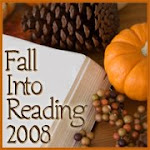 Trusting Him in uncertain times
Trusting Him in uncertain times
For most of us that is much easier said than done. We live uncertain lives in uncertain times. We long for security and answers but are filled with questions about the unknown.
Who will...? What if...? Where can...? When may...? Why not...? Uncertainty all too often grows into worry, anxiety, and fear, which in turn fills us with turmoil, burns up whatever energy we have, and hinders us from enjoying the best of life.
This book tackles the fear we face during times of change, uncertainty, and crisis, and reveals how to replace our fears with hope and anticipation.
Ruth Graham, having earned her reputation of vulnerability and transparency, demonstrates how to discover the all-sufficiency of God and His power. She shares the truth of her own life, faltering in difficult challenges, failing, and yet always landing in the open arms of a welcoming heavenly father. She takes us into the Word of God, drawing on the lives, fears, struggles, and God-encounters demonstrated through biblical men and women.
"If you are hoping to find within these pages ten steps to greater confidence or positive self-talk for conquering anxiety or how to rise above your challenges to reach your destiny, you won't find what you are looking for here at all. This book is not about overcoming your shortcomings to build a better you...it is about discovering that God is worthy of our trust."
Discover the all-sufficiency of God and His power. Replace fear with hope and anticipation. Grow in your understanding of who God is. You will never look at tomorrow through the same eyes again. My Review:Not surprisingly, Ruth Graham has written a thought-provoking book that affords glimpses into her life. Chocked full of antidotes and snippets from her experiences, as well as insights into the Bible, the reader discovers a fallible person--not much different from anyone else--who has learned how to lean on God and get to know Him better, even through difficult times.
I chose to read it slowly--a chapter each day--so that I had time to digest the truths. However, it certainly could be read straightforward as it flows nicely.
At the end of each chapter is a Point of Focus. Graham's ABC Praise List is included in addition to a list of resources and notes.
And now, the first chapter:
Trust at My Doorstep
Chapter 1
It had been a difficult few months. One of my children was struggling, and I didn’t know how things would play out. I was anxious, frightened, and continually preoccupied. I could imagine what might be ahead. The questions were relentless: What could I have done differently? Was it my fault? What could I do to change it? How could I protect my child? Was there another step I could take? I felt as if I were being sucked under by a whirlpool of scenes, conversations, and hypothetical outcomes. I lost weight. I battled headaches. I felt like I was constantly vibrating. The fear was overwhelming.
This particular day, the postman arrived at my door with a padded envelope. It was addressed to me in familiar back-slanted handwriting—something from Mother. Feeling the envelope, I knew it was too light to contain a book. What could it be? My birthday was still a long way off. As I tore at the flap and reached inside, I took hold of what felt like a long, narrow picture frame. Pulling it out, I stopped for a moment and stared. It was the framed print from the wall in front of Mother’s desk. In black calligraphy bordered by a flowering vine I read the familiar words: “Fear not tomorrow, God is already there.”
Instantly, I was transported back to the mountain home of my childhood in Montreat, North Carolina. My mother’s plain wooden desk flanked by a tall chest of drawers and a bookcase took up much of one wall in her room. Always lying open on the desk, surrounded by various reference materials, was her well-marked, dog-eared Bible. On the wall facing the desk hung a collection of precious photographs and artifacts: a crown of thorns woven for Mother by the head of the Jerusalem police, a slave collar given to her by Johnny Cash, a rude wooden cross fashioned by my brother Franklin, photographs of loved ones and of those for whom she was praying. Centered above these artifacts was the print I now held. I’m not sure where Mother got it or who gave it to her, only that I cannot remember a time when it wasn’t hanging there like a banner.
I imagined my mother standing on a chair in front of the desk, reaching to take the print off the wall. Sending me such a gift was just like Mother. All my life, since I left home for boarding school in the ninth grade, she had been sending me letters filled with encouragement from the Scriptures—bits of what she was learning in her own study time or wisdom for some situation I might be facing. Now here she was identifying with my mother’s heart, sending me a poignant reassurance. We had not talked much about the circumstances of my struggle. Mother just intuitively knew I might need something like this—a reminder that God was working in our lives and that he cared about our future. I appreciated her sensitivity. She didn’t blame or condemn me; she didn’t unload a lot of advice. She just sent me something that had been of value to her, something that had reassured her, no doubt, as she had mothered us. Standing on my doorstep, holding that print, I felt the words penetrate my heart and mind, almost as if I had never seen them before, as if they were a message written directly to me. I read them again slowly: “Fear not tomorrow, God is already there.”
Little Foxes
Since that day on my doorstep, I have faced quite a few threatening tomorrows, and I have battled fear and anxiety as resilient foes. Perhaps you have fought this same battle. We may experience moments of clarity, as I did reading my mother’s framed print, but then we return to daily life and to the struggle. We wonder how we’re supposed to “fear not tomorrow” in the worst-case scenarios of our lives: a frightening diagnosis, betrayal, separation from a child who has gone off to war, the loss of a job, the evaporation of our retirement, the drug addiction of a loved one, abandonment by a spouse, failure at our workplace, the loss of a home, a legal verdict that changes our lives, the death of a loved one, the exposure of a secret, the loss of our possessions to flood, earthquake, tornado, or financial disaster.
Fear not tomorrow? It is easy to say it but another thing to live it out. We drown in our questions: But what about . . . ? How will I . . . ? What if . . . ? But if I can’t even . . . ? Who will . . . ? And what does it mean that God is already there? Where? In our crises, God can seem silent, remote, or worse, even imaginary. You may feel as I have at times. I have real problems, and they are too big, too hard, too painful for me to solve. I don’t have time for theology. I’m in trouble here! I’m inadequate, and I need something real. Something practical. Something secure. Give me some solutions, some guarantees. Can’t you see that I’m terrified of tomorrow?
Fear and anxiety can exhaust us. King Solomon writes about the “little foxes that spoil the vines” (Song of Solomon 2:15 NKJV). Fear and anxiety are like that. Fear can wipe us out, burn up whatever energy we have, and hinder us from entering into the full experience of life that God desires for us. Certainly, fear and anxiety can become so severe they incapacitate us. But the majority of us live with fear and still function. I have heard fear compared to a jack hammer buzzing just outside the window. The noise is constantly there. When you sleep, the jack hammer quits, but when you wake up, it starts again, sapping your strength and attention until you’re no longer really living—just enduring.
Fear takes the air out of life. When we live with fear, we lose our capacity for fun and spontaneity. We can’t love others wholeheartedly. We become like that frog being boiled slowly. The water gets steadily hotter until we realize, “I’m not having any fun. I have no joy. I’m not alive. I’ve forgotten how to laugh.” During the difficult period with my child that I described above, I experienced fear in different ways. At times, I would have trouble functioning; at other times, I would be able to get up in the morning and do what was necessary. Up and down. Fear was that steady buzz or hum. I wasn’t able to hear the music of life clearly. Everything was filtered through that fear.
My mother was a master at finding ways to enjoy life despite the intense pressures she faced. She knew how to move fear out of the way and keep joy alive. Stories of her antics and pranks have become the stuff of legend in our family. As a young parent, for instance, I would tell my children, “Now don’t draw on yourselves.” Then I would leave the kids with Mother, only to find them covered in inky smiley faces that Mother herself had drawn! Once Mother made a mudslide for the grandchildren on the side of a steep embankment near our Montreat house. She turned on the hose and then promptly took her turn as the first one down. When much older, she accidently drove her car down that same steep embankment. Thinking she was stepping on the brake, she had stepped on the accelerator instead. She and her friend escaped unscathed, but afterward, Mother arranged for a stop sign to be staked at the bottom of the incline, lest other wayward drivers be tempted to take the same route!
Life is a gift from God to be enjoyed. Fear suffocates our spirits and robs us of that gift. It is human to experience the emotion of fear. Fear entered the human experience in the Garden of Eden when Adam and Eve rebelled against God and hid themselves from Him. But Peter describes Satan as a “roaring lion, seeking someone to devour,” and I believe fear is also Satan’s paw print (1 Peter 5:8). It is true that some kinds fear can help us—the kind that keeps us from stepping into oncoming traffic, for instance, or putting our hand on a hot stove. At times, God may use fear to keep us from making wrong choices or wrong decisions in life. But these moments of fear are different from what the Bible calls the “spirit of fear,” which I might describe as the condition or attitude that takes hold when our emotion of fear consumes us (2 Timothy 1:7 NKJV). As Paul writes, the spirit of fear does not come from God.
Shifting Our Focus
God is concerned about the way fear affects our lives. The Bible says, “There is no fear in love; but perfect love casts out fear, because fear involves torment” (1 John 4:18 NKJV). Fear involves torment. Torment is not God’s will for us. God is committed to our peace. Jesus said, “Peace I leave with you” (John 14:27 NKJV). We read of Jesus, “He Himself is our peace” (Ephesians 2:14 NKJV). God has ordained peace for us (Isaiah 26:12). He did not design us to live in fear and anxiety but in peace. In Scripture, we find God repeatedly urging, commanding, people not to be afraid. God is not condemning us for feeling the emotion of fear, but He doesn’t want us to get stuck there or to set up camp in torment. The question is when we are at our wit’s end, how do we “fear not”? At such moments, peace can seem nothing more than an abstraction. We struggle even to imagine the experience.
Often, when we experience fear, we have allowed our circumstances to overwhelm or alter our perspective. Our perspective has become skewed. I have discovered that defeating fear in my life begins with shifting my focus. I take my eyes off the circumstances, off the source of my fear, and put my focus on God. Instead of mulling over the “what ifs” in my future—instead of looking ahead with anxiety, trepidation, dread, or even horror—I make the choice to look at God, to consider His character, and to trust that the One who loves me is “already there.” The message on Mother’s framed print helped me to make that kind of shift as I faced uncertainty with my child. I had been focusing on tomorrow; the words on the print brought my focus back to God.
Shifting our focus is first a decision, then a process. When we turn to God, our decision opens a door for peace and reassurance to enter our hearts. The Bible says of God, “You will keep him in perfect peace, whose mind is stayed on You” (Isaiah 26:3 NKJV, emphasis added). When we focus on God, peace follows. I find that as I concentrate on God, as I examine facets of His character, as I spend time with Him in prayer, sharing my heart and quieting myself to listen, as I meditate on what His Word says about Him, as I read about Jesus and observe the way He handled life—as I “stay” my mind on God—my problems begin to lose their power over me. Instead, I become absorbed in the power, the beauty, and the love of God. He is my focus now. I am learning about Him and getting to know Him. And the more I learn, the more I discover I can trust Him.
In the coming chapters, we will be doing just what the verse above from Isaiah says—staying, or fixing, our minds on God. We will examine some of God’s attributes and consider His ways. We will study the character of Jesus, for in learning about Jesus, we learn about God. Scripture calls Jesus the “express image” of God (Hebrews 1:3 NKJV). Jesus Himself told His disciples, “He who has seen Me has seen the Father” (John 14:9 NKJV). If we want to know what God is like, we can look at Jesus. We can ask: How did Jesus deal with people? What were His relationships like? How did He respond to people’s distress? As we focus on God this way, we can expect God’s peace to crowd out the fear in our hearts.
For some of us, focusing on God, or considering that He is “already there” in our tomorrow, is not exactly a comfort. We may be afraid of God. What little we know of Him, or what we don’t know of Him, frightens us. We fear He is out to lower the boom on us, that He is looking for our faults and eager to point out our failings. We are afraid of His power. Afraid of His judgment. Afraid of being overwhelmed by Him. It is our human nature to fear what we don’t understand, and we don’t understand God. He is unfathomable. He is so much more than we can imagine—far more. He is not accountable to us. He is mysterious, and mystery can be frightening. On seeing the Lord on the throne, Isaiah said, “Woe is me, for I am undone!” (Isaiah 6:5). Isaiah saw his frailty in light of God’s almightiness; he was awed by God’s holiness and glory.
But Scripture also calls God “Abba,” an intimate word for Father that we would translate “Daddy” (Romans 8:15). While God is overwhelming, He is also tender with us. In the New Testament, we see Jesus touching, healing, and relating intimately with people. Bette Midler recorded a song with the lyric, “God is watching us from a distance.” That line is only half-true. God is watching us. But not from a distance. Jesus said, “If anyone loves Me, he will keep My word; and My Father will love him, and We will come to him and make Our home with him” (John 14:23 NKJV). God comes close. He makes His home with us. He longs for us as a lover for his bride. We take God for granted, we don’t develop the relationship, we ignore Him, we don’t spend time with Him, and yet He stays with us, longing for that intimacy. God makes covenant with us, and He keeps it. To me, that is one of the most reassuring truths about God. He will never give me up. Never desert me. Never leave me alone. Never (Hebrews 13:5).
As we learn more about God in these pages and spend time focusing our attention on Him, our relationship with Him will deepen. The Bible promises that when we draw near to God, he will draw near to us (James 4:8). As our relationship with God grows, so will our trust in Him. We will discover His constancy. When everything around us is unstable, God is stable. His character is consistent, unchanging. His love is secure. My prayer is that the more you learn of God and the closer you get to Him, the more you will be able not only to trust Him with your tomorrow but also to take comfort in the fact that He is the One who is already there.
Overcoming Our Misperceptions
Part of our challenge in learning to trust God involves overcoming misperceptions we may have of Him. If my view of God is not accurate, then my trust in Him will be more hesitant than hopeful. Often our picture of God is colored by our experiences with our own fathers or with other figures of authority in our lives. If your father was cold and demanding, then you may see God that way. If your father was gone, as mine often was, then you may see God as far away or busy with other things. If an authority figure was angry or abusive, then you may see God the same way and want nothing to do with Him. We are relational beings, and as such, we are hardwired to measure God by our experiences with significant people.
I did not always view God as someone with whom I could be comfortable. As I shared, my father was gone much of the time, fulfilling his calling to preach the gospel. I knew my father loved me; I knew I was important to him. But I also knew the world needed him, and for many years, I saw God as being similarly occupied with others and unreachable. I have since learned that God is not like that.
In my book In Every Pew Sits a Broken Heart, I share in detail about my life, my failures, and some of the ways God met me in my brokenness and redeemed it. I tell the story of what it was like to go home to Montreat after a major personal failure. Driving up the mountain to my parents’ home was one of the most difficult things I have ever done. I had no idea what they would say to me or how they would respond. I had gone against everyone’s advice. As I saw it, I had failed myself, my family, my children, and God. I felt deserving of condemnation and rejection. What would my parents do? Would they say they had told me so? That I had made my bed and now would have to lie in it?
As I approached the top of the mountain, I saw my father standing there in the driveway. I parked the car and opened the door to get out, but before I could as much as set my feet on the asphalt, my father was at my side. He wrapped his arms around me, and I heard him say, “Welcome home.” His acceptance instantly silenced my shame. I was broken, but I no longer feared. My father had embraced me at my worst and loved me anyway. I experienced grace. I would not compare my father with God, but that day my father showed me in a very practical, gracious way what God is like.
Through that experience, I was able to get a glimpse of the unconditional love God has for me. It has taken me a while to get to a point where I finally see God as “Abba,” as Daddy. Learning to know God intimately has been a process. But through the fog of doubt, anxiety, and fear, I do see Him now as warm and embracing. He loves me, enjoys me, and wants me to know His joy. He will do anything to draw me in. He wants my heart. He wants my trust.
Many years ago I taught a Bible study entitled “Enjoying God” for the women at my home church. I was convinced most of us did not enjoy God. Even the title of the study made us a bit uncomfortable. Was it sacrilegious to “enjoy” God? Wasn’t He austere and stern? Holy and unapproachable? I wanted to explore the possibilities.
The first week’s homework was to imagine crawling into God’s lap and calling him Daddy. I think many were slightly put off by the assignment. Some had to deal with the damaged image of an earthly father. Some had difficulty seeing God in such an intimate way. Each week the assignment was the same. Gradually, I began to hear reports of breakthroughs. Some people took longer than others to connect with God, but we sensed God doing something profound in the group. My own life changed over the course of that study as I too began to see God intimately—as a secure place of comfort and peace. As I focused on Him, God was chipping away at my misperceptions, helping me to open my heart to His love. And He can do the same for you.
Why, God?
Our misperceptions of God can also be formed in the trials and heartaches of life. You may have a long scar of pain running through your life—a spouse leaving, the loss of a child, bankruptcy, illness, addiction, things that take the breath out of you. Perhaps you feel that God abandoned you in those experiences. That He must not care about you. That if He loved you, He wouldn’t have let you go through all that hurt. You wonder, “Why should I trust Him now?”
Why, God? This is a real question we ask when life happens and things seem to go badly. Why are You letting my life unravel? Don’t You love me? Didn’t You promise to protect me? How could You let this happen? In the valleys of life, we can feel as if God has betrayed us. That He isn’t trustworthy, as we once thought. That we’ll never again have a stable or secure place to stand. When devastation occurs and we can’t see God anywhere, our trust in Him can crumble to dust. We may even reject Him for a time.
I’ve lived through personal events that have left me reeling. I have written about suffering in a broken marriage. As the marriage began to come apart I couldn’t “feel” God. I couldn’t hold myself together. I described the way I felt back then: “Raw. Lonely. Exposed. Like an egg without a shell.” I wanted to know why those circumstances were happening to me. Perhaps you have felt this way too.
I’ve seen loved ones suffer through crushing experiences, and I’ve asked God why. Why did my friend’s first grandchild die just hours after birth? Why did a young missionary couple’s two-year-old child drown in the backyard? Why was my friend diagnosed with lung cancer though she never smoked a day in her life? We witness or live through destruction caused by tornadoes, hurricanes, tsunamis, and earthquakes. We call them “acts-of-God,” and we wonder why God would allow them. Fear not tomorrow? How can we do anything but fear after all the devastation we’ve already seen?
God is not threatened by our why. People say we can’t ask why, but we can—we should. We’re in good company when we ask why. Jesus, Job, David, Jeremiah, and many others we would call “heroes of the faith” have asked why. Asking why is part of the human experience. When we ask God why, we are expressing our innermost emotions, our hurt and disappointment, and God wants us to do that. He works with honesty. He is not threatened by our questions and doubts. He invites us to express our feelings. We’re in a relationship with Him—He doesn’t want us to shut our emotions down. While God already knows how we feel, we need to know; and often we discover what is in our hearts as we express ourselves freely to Him.
But we can also get stuck at why. While asking why can be a stimulus for further exploration, understanding, and honest grappling, sometimes it can become a defense—a way to keep God out and to keep intimacy with Him at bay. We can go round and round in circles with why, never really intending to get anywhere. We can get comfortable with why. We would rather stay where we are than do the hard work of learning how to trust God again. And if we’re not careful, some people will keep us there. They will feed our why as long as we let them. At a certain point, what we actually may need is someone to pull us forward and say, “Hey, let’s explore why you feel this way. Let’s not give up on God.”
God invites us to wrestle with our why, our questions. He wrestles with us, as He wrestled with Jacob (Genesis 32:24–32). But finally the angel of God touched Jacob’s thigh and put it out of socket. I can hear the angel saying, “It’s enough now. Let’s go forward.” My Uncle Clayton Bell, my mother’s brother, died suddenly of a heart attack at age sixty-eight. He loved God passionately and was pastoring a thriving church. Those who loved him asked God why. Why take this dynamic man at his prime? Why not leave him here to serve You? Aunt Peggy, my uncle’s wife, suffered greatly, but there came a time when I remember her saying, “I’m going to lean into the pain.” Whatever her questions, she was going to “lean,” trusting God and expecting Him to be there.
At some point, trusting God becomes a step of faith. No one can prove God. You will have to make the choice to trust Him for yourself. Making that choice doesn’t mean you have settled your questions; you may not see those questions resolved in this life. But you can make the decision to try trusting God again. You can take a step forward with all your unresolved questions and invite God to reveal Himself. It’s okay to live with what I call “unfinishedness.” I think about my mother and how “finished” she looked in her relationship with God—as if everything were settled, everything clear. But when you read Mother’s poetry, you discover she was anything but finished. She simply learned to live with her questions and to trust God anyway.
Walking Forward
Why not bring your questions along as you walk forward to discover more about God in this book? You can invite God to work with you as you read. Ask Him to help you in your battle with fear. Ask Him to help you overcome your misperceptions of Him so you can trust Him for tomorrow. God longs to reveal Himself to you. Jesus said about those who love God, “I too will love them and show myself to them” (John 14:21 TNIV). God wants us to see Him for who He really is.
We don’t have to get it all at once. Trusting God is a process. Just as there are stages of life, there are stages of faith. Trust comes bit by bit. Our part is to be willing—willing to move, willing to try. God wants our willingness. Someone once said you can’t steer a car that isn’t moving. If we can just make the choice to move, God will meet us. I want to challenge you. Open yourself up to the possibility of what God can do in your life. Let Him show Himself worthy of your trust. Walk forward into these pages and decide for yourself about God. See if His intimate love is real. See for yourself. Don’t let your questions or misperceptions be hindrances. They don’t have to stop you from moving. Let’s get to know God better. Let’s discover Him. We can bring our baggage, our questions, our “why” right along with us.
****************************************************
Fear Not Tomorrow, God is Already There:
Trusting Him in Uncertain Times
Ruth Graham
Howard Books
West Monroe, Louisiana
[Refer to P4P regarding inclusion of purpose statement.]
Our purpose at Howard Books is to:
Increase faith in the hearts of growing Christians
Inspire holiness in the lives of believers
Instill hope in the hearts of struggling people everywhere
Because He’s coming again!
[Howard Logo] Published by Howard Books, a division of Simon & Schuster, Inc.
1230 Avenue of the Americas, New York, NY 10020
www.howardpublishing.com
Fear Not Tomorrow, God Is Already There © 2009 Ruth Graham
All rights reserved, including the right to reproduce this book or portions thereof in any form whatsoever. For information, address Howard Subsidiary Rights Department, 1230 Avenue of the Americas, New York, NY 10020.
Published in association with Ambassador Literary Agency, Nashville, Tennessee
Library of Congress Cataloging-in-Publication Data TK
ISBN-13: 978-1-4165-5843-9
ISBN-10: 4165-5843-8
10 9 8 7 6 5 4 3 2 1
HOWARD and colophon are registered trademarks of Simon & Schuster, Inc.
Manufactured in the United States of America
For information regarding special discounts for bulk purchases, please contact: Simon & Schuster Special Sales at 1-800-456-6798 or business@simonandschuster.com.
Edited by Stacy Mattingly and Cindy Lambert
Cover design by TK
Interior design by TK
Photography/illustrations by TK
Scripture quotations not otherwise marked are from the New American Standard Bible®. Copyright © 1960, 1962, 1963, 1968, 1971, 1972, 1973, 1975, 1977, 1995 by The Lockman Foundation. Used by permission. Scripture quotations marked AMP are from the Amplified Bible®, copyright © 1954, 1958, 1962, 1964, 1965, 1987 by The Lockman Foundation. Used by permission (www.Lockman.org). Scripture quotations marked KJV are from the Holy Bible, Authorized King James Version. Scripture quotations marked NIV are from the Holy Bible, New International Version®. Copyright © 1973, 1978, 1984 by International Bible Society. Used by permission of Zondervan. All rights reserved. Scripture quotations marked NKJV are from the New King James Version®. Copyright © 1982 by Thomas Nelson, Inc. Used by permission. All rights reserved. Scripture quotations marked NLT are from the Holy Bible, New Living Translation, copyright © 1996. Used by permission of Tyndale House Publishers, Inc., Wheaton, Illinois 60189. All rights reserved. Scripture quotations marked The Message are from The Message. Copyright © 1993, 1994, 1995, 1996, 2000, 2001, 2002. Used by permission of NavPress Publishing Group. All rights reserved. Scripture quotations marked TNIV are taken from the Holy Bible, Today’s New International Version®. TNIV®. Copyright© 2001, 2005 by International Bible Society. Used by permission of Zondervan. All rights reserved.

 Susie wakes up after a party knowing something isn't right. When she discovers she is pregnant but has no idea who the father is, she decides to place her baby for adoption with an infertile couple from church. Following through ends up being more challenging than she'd imagined.
Susie wakes up after a party knowing something isn't right. When she discovers she is pregnant but has no idea who the father is, she decides to place her baby for adoption with an infertile couple from church. Following through ends up being more challenging than she'd imagined.


































